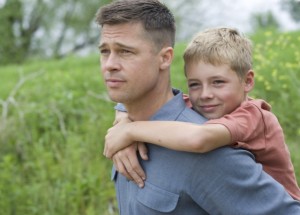Trailer: ‘A Little Help’
Posted on June 4, 2011 at 8:00 am
This looks like one of those little indies that reminds us why we really do love little indies.
http://www.youtube.com/watch?v=BXAza50M9jo&feature=related
Posted on June 4, 2011 at 8:00 am
This looks like one of those little indies that reminds us why we really do love little indies.
http://www.youtube.com/watch?v=BXAza50M9jo&feature=related
Posted on June 3, 2011 at 3:31 pm
“Hangover 2” got slammed by the critics, with only a 35 percent positive rating on Rotten Tomatoes. But I liked it. I don’t usually comment on other critics’ reviews, but this time I think it is worth taking a moment because the very things that many critics didn’t like about the movie were the things I liked best. Many critics complained that it was essentially a remake of the first, sticking closely to the same structure. They saw that as a sign of lack of imagination or just cynical and lazy. I thought it was very clever. In narrative terms, the repetition underscores an inevitability, almost a destiny for the characters that deepens the comedy with another layer.
Many critics thought the movie crossed the line from outrageous to offensive. I had some problems with some of the material but overall I appreciated its willingness to go darker and more twisted than the first one. I was less offended by the confident, beautiful trans stripper/hooker in the sequel than the idealized hooker/mom with a heart of gold in the first one.
Christopher Orr is one of my favorite critics — smart, knowledgable, funny, and a terrific writer. I loved his review of the “brutal hilarity” of “The Hangover 2.” 
Indeed, the comedy is not just black but noir–which is apt, given the formula to which Phillips has adhered so rigidly. The missing person, the seamy urban setting, the gradual accretion of clues: The Hangover films are, essentially, hard-boiled crime stories spun into comic depravity, heirs as surely to Hammett, Chandler, and Cain as they are to Apatow and the Farellys. This was central to the appeal of the first movie. Even as it found room for scenes with taser-happy schoolkids and Mike Tyson singing “In the Air Tonight,” there was an uncommon meticulousness to its structure: It succeeded not only as comedy but, in its way, as mystery.
I think that when characters like Phil (Bradley Cooper) and Stu (Ed Helms) or even Helms’ character in “Cedar Rapids” have some uncharacteristic acting out it should reveal something about their characters. (I don’t think Alan’s behavior on drugs is very different from off drugs.) It is fun to see how excruciating it can be for Phil and Ed to discover, slowly what they are capable of, but it is more satisfying to see them realize (even in a comedic way) that they need to integrate that with their notion of themselves.
Posted on June 2, 2011 at 6:19 pm
Malick has only made five films in nearly 40 years. Each of them has had a meditative quality, a haunting voiceover, exquisite images, and themes centering on the loss of Eden. “The Tree of Life” begins with a quote from the Book of Job, but even though very sad events befall the O’Brien family this is not the story of good people whose faith is tested by a series of unbearable losses. It is an exploration of how we fit into the grandest possible scheme of things, how the patterns repeat in the division of cells to make complex systems, the development of mechanical formulas so singular that they merit a patent, the awakening of the first adult thoughts in a child, innocence and loss, harsh reality and ethereal imagination. 
Mr. and Mrs. O’Brien are so archetypal they do not even have first names. They are just Father (never Dad) (Pitt) and Mother (pre-Raphaelite beauty Jessica Chastain). Pitt sheds his movie-star charisma for his Missouri roots, showing us a mid-century man from Middle America, every line of him as straight as the slide rule that like O’Brien himself is about to be out of date. He loves his three boys fiercely and fights down his own tenderness to teach them the lessons he thinks they must have to survive. He is all that is hard and logical and precise and mechanical. Mrs. O’Brien is gentle, almost silent, so in tune with nature she seems to float through it.
The movie’s near-miracle is the way it evokes the muddy, let’s-break-something boy world. Sending a frog up in a rocket, racing behind a truck spewing clouds of DDT, shoving against each other like puppies, holding in wonder a neighbor’s neglige, the heartless, heedless, long, long thoughts of a boy’s life are beautifully portrayed.
It is easy to understand why this film was both booed at Cannes and given its highest honor. I admired the film’s audacity but winced at its pretentiousness. There are some moments of stunning beauty and power. But other parts seemed overdone and empty.
(If you want to know what I think the ending means, send me an email at moviemom@moviemom.com — and tell me what you think it means!)
Parents should know that this film includes an offscreen death of a child with devastating parental grief, children’s play results in death of an animal, a father is strict with children and his wife to the point of brutality, some dinosaur violence, some disturbing existential themes.
Family discussion: What is this movie about? How do the creation scenes relate to the story of the family? Why is there so little dialog? What is happening in the end on the beach?
If you like this, try: the short film “Powers of Ten” and the other films by Terrence Malick including “Days of Heaven” and “Badlands”
Posted on June 2, 2011 at 8:00 am
Jessica Winter has a great list on Slate of breakthrough performances with an unusual focus. I always love the thrill of discovering a new talent; it is one of the greatest pleasures the movies bring us. But Ms. Winter makes the point that these mesmerizing newcomers can do something a star cannot. We are happy to buy tickets to see our established favorites like Will Smith, Tom Hanks, and Julia Roberts. But the very thing we love about them — our knowledge of them, even our sense of a fan relationship with them — makes it impossible for them to disappear into a role the way a newcomer does. Every time we see an actor we learn a little more about the individual as we observe the performance. There are gestures and expressions that stay the same from role to role. But a first performance can transfix us into dissolving the line between actor and character. Winter’s examples all come with very telling clips illustrating her point.
Posted on June 1, 2011 at 3:15 pm
Related Tags: